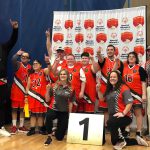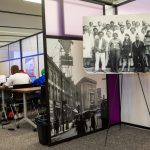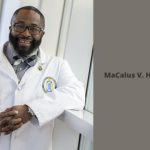More than 10 years ago, Kevin Conley, Ph.D., volunteered to work an amateur basketball tournament at the University of Pittsburgh’s antiquated Fitzgerald Field House. He provided medical and athletic-training care, nothing out of the ordinary for a longtime certified athletic trainer at the collegiate level. Yet the moment changed his schedule, his travels and his life.
 |
| Kevin Conley, Ph.D. |
He was smitten by the athletes’ gratitude. He was swept up by their “sheer joy” of experience and competition and camaraderie.
And that’s how an assistant dean and vice chair at Pitt wound up the newly named Medical Director of the USA Special Olympics team, starting with the 2013 Winter Games next February in South Korea.
“The thing that stuck out the most to me was the response I received from athletes after providing what I perceived as the most innocuous of medical care,” Dr. Conley remembered of that inaugural Special Olympics event. “They were so thrilled to have someone there to take care of them, and they genuinely enjoyed the attention.”
Dr. Conley is the assistant dean of undergraduate studies at Pitt’s School of Health and Rehabilitation Sciences. He is the program director and an assistant professor in Athletic Training Education and the vice chair of the Department of Sports Medicine and Nutrition.
Those are just the titles from his day job, too.
Dr. Conley, 45, accepted the Medical Director’s position this past summer and began attending pre-Games meetings in Lake Placid, N.Y., this fall. His job will be to plan logistic needs and concerns for the five-person medical effort that accompanies the team on Jan. 29 to Feb. 5 to PyeongChang, South Korea.
Tending to the needs of Special Olympians is a unique job. A certified athletic trainer normally spends weeks or even months around the same athletes, getting to know everything about their medical concerns. Not so with Special Olympians.
“This requires the clinician to make every effort to understand the athlete’s medical history so that appropriate decisions can be made in the event of injury or illness,” Conley said. “Another challenge is to work around potential communication – speech or hearing – issues in order to get the most accurate information possible in providing the best treatment available.”
After South Korea, the next world-stage stops on the Special Olympics calendar are the Summer Games in 2015 in Los Angeles and the Winter Games in 2017 in Austria.
“I certainly hope to be involved in both of these events,” Conley said. “In the meantime, I will continue my involvement at the local level and hope to get involved in other Special Olympic national events.”







